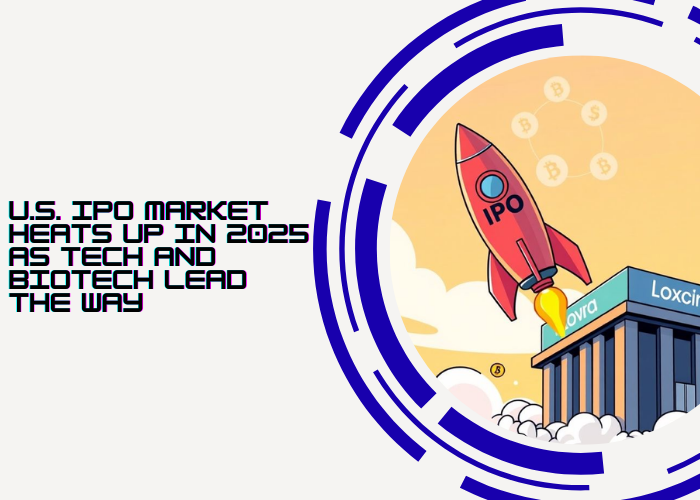How to Get Ready to Ride the Tech Wave of 2025
Have you ever stopped to think about how the digital revolution is shaping the future faster than we can keep up? In 2025, technology trends promise to further transform the way we live, work, and connect with the world.
Artificial Intelligence, quantum computing, augmented reality, and even the arrival of 6G are just the tip of the iceberg in a landscape that demands quick adaptation and strategic vision. Ignoring these changes could be costly — both for your career and your business.
In this content, you will discover the technology trends for 2025 that are about to redefine standards and open new opportunities. Get ready: the future has already begun, and it won’t wait.
When we talk about the digital revolution, we’re not referring to a distant or futuristic concept: it’s already happening in the present and intensifying each year. According to a Gartner study, about 75% of organizations plan to accelerate the adoption of emerging technologies by 2025, focusing on automation, connectivity, and data analysis.
After years of closely following technological evolution and how it directly impacts people and businesses, I can say with confidence: those who anticipate trends reap exponential results. Progress is no longer an option; it is a vital necessity.
Stay with me until the end because, in addition to learning about the main technology trends for 2025, you’ll discover how to prepare in a practical and strategic way to not only keep up but to lead this transformation.
1. What to Expect from the Digital Revolution in 2025
Technology has never evolved so quickly. In 2025, experts project a scenario where autonomy, connectivity, and intelligence will set the pace of society and the economy. It’s not just about new devices or software, but about a structural shift in the way we live and interact.
Digital transformation will no longer be a differentiator but a basic requirement for both business and personal survival. Companies that don’t adapt will be left behind, and professionals who don’t seek updates will face major challenges.
2. Artificial Intelligence: More Human and Present in Daily Life
If in 2020 Artificial Intelligence (AI) was seen as an automation tool, in 2025 it will be recognized as an extension of human capability. Advances in generative AI, such as those seen with ChatGPT, show that machines are learning to create, predict, and advise in increasingly personalized ways.
Explainable AI will stand out: more transparent algorithms that allow us to understand how decisions are made, increasing trust in sectors such as healthcare, finance, and education.
3. Quantum Computing: From Theory to Practice
For decades, quantum computing was a concept reserved for laboratories. In 2025, we will see its first commercial applications, revolutionizing fields such as cryptography, new material modeling, and complex process simulation.
Companies like Google, IBM, and innovative startups are at the forefront of this race, and countries that invest heavily in this technology will be able to dominate strategic sectors.
4. Augmented and Virtual Reality: New Experiences, New Markets
Augmented Reality (AR) and Virtual Reality (VR) will move beyond entertainment to conquer fields such as corporate education, medical training, and sales. Hyper-realistic simulations will enable everything from performing surgeries to buying virtual properties in the metaverse.
According to Statista, the global AR and VR market is expected to surpass $250 billion by 2025, creating new professions and demanding unprecedented skills.
5. 6G Technology: Hyperconnection at High Speed
We are still getting used to 5G, but 6G is already on the horizon. With speeds 100 times faster than 5G, this technology will enable immersive real-time experiences such as interactive holograms and remote surgeries with millimetric precision.
Governments and tech giants are already investing billions in research and development to secure leadership in this new chapter of connectivity.
6. Internet of Things (IoT): Smarter Homes and Cities
The Internet of Things goes far beyond virtual assistants. By 2025, more than 75 billion devices are expected to be connected to the internet, controlling everything from a city’s water supply to preventive car maintenance.
The concept of smart cities will no longer be a trend but a reality, improving quality of life through sustainable and efficient solutions.
7. Cybersecurity: The Race Against Cybercrime
With increased digitalization, cybercrime will also become more sophisticated. By 2025, the global cost of cyber threats is expected to exceed $10 trillion.
Companies will need to invest heavily in proactive cybersecurity, using defensive AI and blockchain to protect critical data. Privacy, in fact, will become a currency of trust between consumers and brands.
8. Sustainable Technologies: Innovation with Environmental Purpose
Technology and sustainability will go hand in hand. Renewable energy, biotechnology, and recyclable materials will take the spotlight. Green startups will grow in areas such as precision agriculture, carbon capture, and electric mobility.
The pursuit of a sustainable future will become the new standard: innovation without environmental purpose will be seen as outdated and socially irresponsible.
9. Work and Education: The New Era of Digital Platforms
The hybrid model will consolidate, and the use of digital platforms for collaboration and distance learning will become permanent. The demand for digital skills such as programming, data analysis, and online project management will rise.
Formal education will need to reinvent itself to prepare professionals to thrive in increasingly dynamic and technological environments.
10. How to Prepare to Ride the Technology Wave of 2025
Those who want to seize upcoming opportunities need to start today. Some essential actions include:
- Update skills in technology and innovation.
- Invest in continuous learning and learn how to learn.
- Stay alert to trends and be adaptable.
- Prioritize digital ethics and data protection.
- Understand that innovation is behavior, not just a tool.
The future doesn’t belong to those who predict changes, but to those who prepare for them.
History has already shown us that it’s not the strongest that survives, but the most adaptable. And in 2025, with technology advancing rapidly, this saying has never been truer.
Given the speed of change, adopting a passive stance is no longer an option. Continuous updating, a critical mindset, and a willingness to learn will be as important as any technical knowledge.
It’s not enough to follow trends — you must understand their impact and act strategically. Those willing to rethink methods, challenge old models, and embrace innovation will have a real competitive advantage.
The digital revolution is underway. And you? Are you ready to be a protagonist in this transformation, or would you rather watch from the sidelines while it shapes the future?
The time to act is now.



